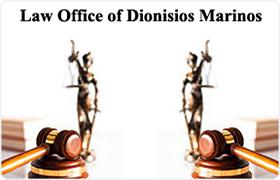Monterey Park Divorce & Family Law Lawyer, California
Sponsored Law Firm
-
 x
x

Click For More Info:
-
Law Office of Dionisios Marinos
5150 E Pacific Coast Hwy Suite 200 Long Beach, CA 90804» view mapDivorce & Family Law Committed To Client Satisfaction
Don't hesitate to call the Law Office of Dionisios Marinos in Long Beach, CA. We are committed to your satisfaction. Call us today.
800-846-1250
FREE CONSULTATION
CONTACTEdward Chi-Leung Ip
Construction, Wills & Probate, Family Law, Banking & Finance
Status: In Good Standing
FREE CONSULTATION
CONTACTFREE CONSULTATION
CONTACTPatricia Jane Erb
Immigration, Family Law, Divorce & Family Law
Status: In Good Standing Licensed: 37 Years
Beatriz Alicia Pelayo
Litigation, Dispute Resolution, Family Law, Criminal
Status: In Good Standing Licensed: 20 Years
Beatriz A. Pelayo-Garcia
Prenuptial Agreements, Family Law, Divorce, Child Custody
Status: In Good Standing
Bradley Drew Hochberg
Immigration, Family Law, Criminal, Personal Injury
Status: In Good Standing Licensed: 31 Years
 Dionisios Marinos Long Beach, CA
Dionisios Marinos Long Beach, CA Practice AreasExpertise
Practice AreasExpertise
